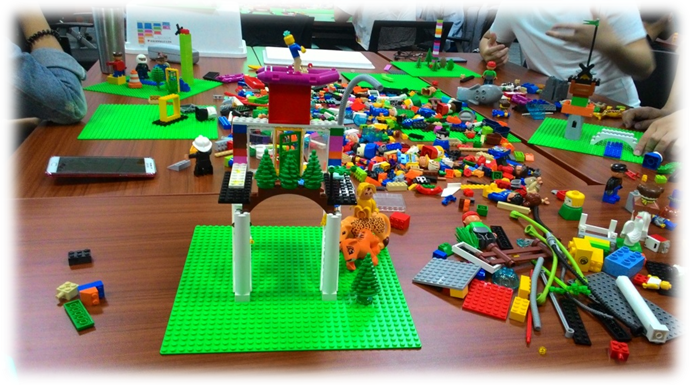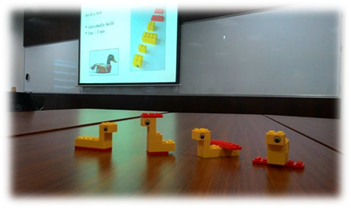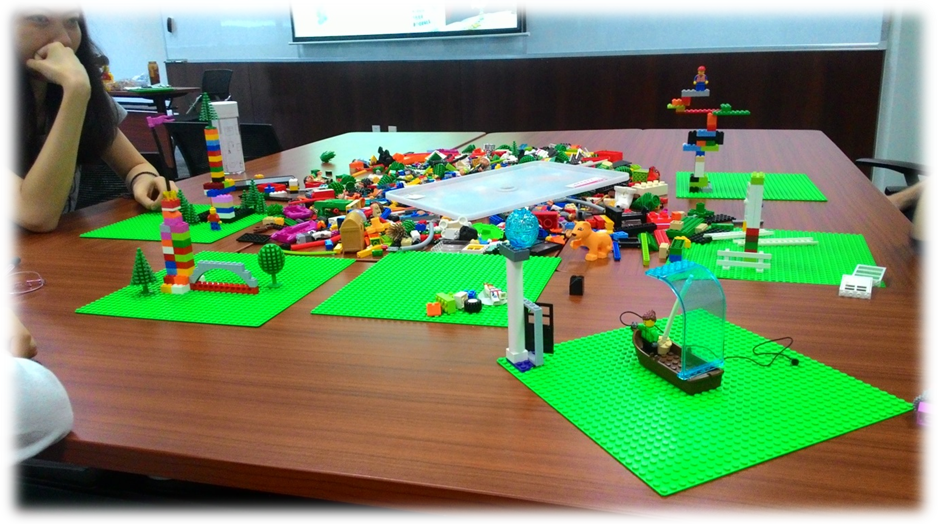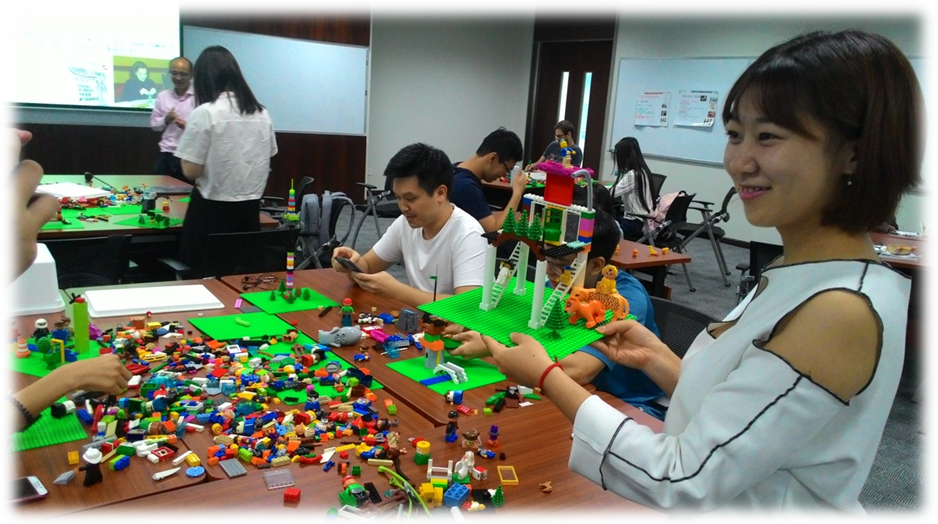Play, build and imagine.
Three concepts that led our Leadership class last Thursday, when professor Lan Liu invited Wang Ligeng 汪立耕 to guide a workshop about how leaders can apply imagination and “foolishness” in storytelling.
In his great article, “The Technology of Foolishness”, James March states that the ideas of purpose, consistency and rationality strongly define our culture.
We are taught that our actions should always be rational and motivated by goals consistent among each other,“Impulse, intuition, faith and tradition are outside that system and viewed as antithetical to it” (March, p.255).
The author defines the current decision making process as ´adult-like´, proposing instead a new way of making choices, more ambiguous and fluid.
We should be like children, he says, do things that are not consistent with our current goals, because we can only develop into interesting people by starting to appreciate aspects of experience that we initially reject.
We should embrace playfulness and reject our usual resistance to behavior that does not follow rules and logic.
How to temporarily escape rationality and start experimenting with what March defines as “foolishness”? Lego bricks! “Play relaxes that insistence to allow us to act “unintelligently” or “irrationally” or “foolishly” to explore alternative ideas of possible purposes and alternative behaviors” (March, p.261).

Wang Ligeng 汪立耕, distributed three boxes of Lego bricks, and through individual and group exercises, showed the students how everyone has imagination and interpretation is subjective.

First assignment: no two identical ducks were built.
The use of temporary play and storytelling allowed the class to open up imagination and discuss powerful concepts by storytelling.

Telling stories is indeed a powerful tool for leaders but it does not always come spontaneously, it is a skill that needs to be mastered.
In this context Lego bricks and its playfulness helped the students to temporarily abandon rationality and follow their intuition and imagination. Building before thinking and using metaphors and creativity, they were asked to tell their own story, their life, future career, dreams.

This eye-opening workshop makes us realize the importance of what March states, “Individuals and organizations need ways of doing things that have no good reason. Not always. Not usually. But sometimes. They need to act before they think.”
Reported by Sofia Zamengo